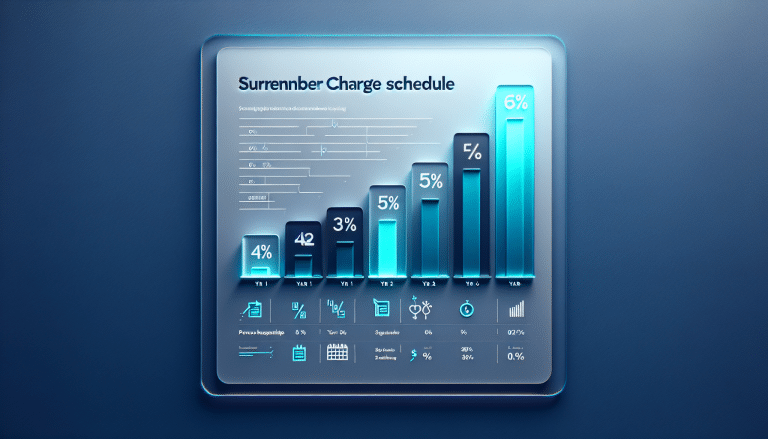
What is a Deferred Annuity & How Do They Work?
A deferred annuity is a type of annuity contract that defers paying income payments for a period of time, known as the accumulation phase.
What is a Deferred Annuity?
All annuities have one feature in common, and it makes annuities different from other financial products. When you buy an annuity, the insurance company promises to pay you income regularly for a period of time you choose—including the rest of your life.
A deferred annuity is a type of annuity contract that defers paying income payments for a period of time, known as the accumulation phase. The accumulation period of an annuity is the period of time when your cash value is increasing. This deferral period can last for years – there is no set period of time that the accumulation phase can last.
The accumulation phase varies from contract to contract and will be determined by your specific annuity. An annuity that does not have an accumulation phase and begins paying you payments right away is called an immediate annuity.
How Does a Deferred Annuity Work?
Deferred Annuities Have Two Phases:
Accumulation Phase:
During the accumulation period, the value of your annuity changes based on the type of annuity you purchase.
The type of annuity you invest in will impact how interest accumulates and you will want to consider both your investment needs and goals when choosing the best investment.
Payout Phase:
The initial payout begins when you decide to take out money from your annuity. You can choose to get partial withdrawals, full surrender, or convert your deferred annuity into guaranteed lifetime payments.
Also, annuity payments could be taken from the investment at any age while the money is still growing. Some people might supplement that income with different kinds of other retirement income sources. Withdrawals of the money from the investment are subject to ordinary income tax and will be subject to an additional 10% tax penalty if taken before age 59 1/2.
Your annuity gives you the option to delay taxes on your annuity earnings from the time they are made. If you withdraw money from your annuity too early in your life, you are subject to higher income taxes. As an alternative, you may have access to funds in a tax-free individual retirement account. Funds in these accounts are tax-free when withdrawn either from age 59 ½ or later, or any time after age
Types of Deferred Annuities
Fixed Index Annuity
Fixed index annuities are a type of fixed deferred annuity that earns interest based on changes in a market index, which measures how the market or part of the market performs. The interest rate is guaranteed to never be less than zero, even if the market goes down.
Variable Annuity
Variable annuities earn investment returns based on the performance of the investment portfolios, known as “subaccounts,” where you choose to put your money. The return earned in a variable annuity isn’t guaranteed. The value of the subaccounts you choose could go up or down. If they go up, you could make money. But, if the value of these subaccounts goes down, you could lose money. Also, income payments to you could be less than you expected.
Fixed Annuity
With fixed deferred annuities, the growth of the annuity is subject to the interest rate terms described in the annuity contract you purchase. For example, the length of any interest rate guarantee is stated, as well as the terms for earning interest as declared by the company in addition to a guaranteed rate.
Deferred Income Annuity
The deferred income annuity gives you a steady, pension-like income stream that you can depend on in retirement. The longer you defer the payout phase the higher your guaranteed income payments will be in the future.
Annuity Payout Options
Period Certain – A period certain payout option guarantees an income stream for a set period of time. Most often 10 or 20 years.
Single Life Only – Guarantees monthly income payments for as long as you are alive. With this option, there is no guarantee all of your purchase premium will be paid back in the instance you should die prematurely.
Joint Life – Guarantees monthly income payments for as long as you and another person are alive. Most companies reserve joint life policies for spouses or domestic partners but not all.
Life (or Joint Life) with Installment Refund – Guarantees payments as long as you, or both of you, are alive. If both parties to the contract should die prior to receiving back all of the purchase amounts in the form of payments, the regular monthly payments will be paid to your designated beneficiary until all of your purchase premium has been returned.
Life (or Joint Life) with Cash Refund – with a cash refund option the difference between purchase premium and payments made prior to death, is paid to your elected beneficiary as a lump sum (rather than continuing to make the regular payments).
Pros and Cons of a Deferred Annuity
Pros
- Deferred annuities can provide a retirement income guaranteed for the annuitant’s lifetime.
- Deferred annuity rates are higher than current bank cd rates.
- Fixed and Fixed Indexed Annuities provide growth potential and principal protection.
- Annuity owner knows what their guaranteed income payments will be in the future.
- Deferred annuities grow tax-deferred until income is withdrawn from the annuity.
Cons
- Some types of annuities charge high annual fees.
- Liquidity is often limited during the accumulation phase.
- Withdrawals before age 59 1/2 may result in a 10% tax penalty.
- Deferred annuities are long term contracts
- Surrender penalties can be charged on early withdrawals above the annual free withdrawal amounts.
Popular Deferred Annuities
Annuity Resources
Buy An Annuity Online
Complete your annuity application electronically.
Annuity Rates
Compare live annuity rates from more than 50 annuity companies
Annuity Quotes
Get a fixed, income or fixed index annuity quote online.
Life Insurance Quotes
Get instant life insurance quotes online.
Annuity Calculators
Access more than 20 calculators.
Annuity Reviews
Make informed buying decisions.
As Seen On:








